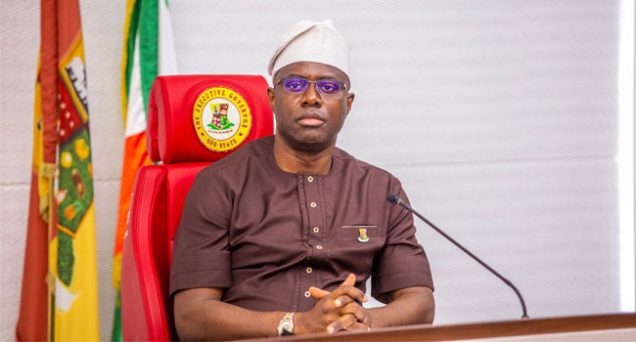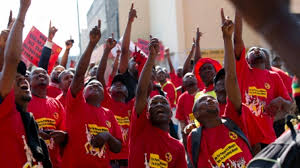Defence
NSA advocates collective action against illicit arms in Nigeria

The National Security Adviser (NSA), retired Maj.-Gen. Babagana Monguno has called for collective action by all stakeholders to rid Nigeria and Africa of illicit small arms and light weapons.
Monguno made the call at a one-day Roundtable discussion with stakeholders on Small Arms and Light Weapons (SALW), organised by the National Centre for the Control of Small Arms and Light Weapons (NCCSALW), on Thursday in Abuja.
Monguno was represented by the Director of Policy and Strategy, Office of the National Security Adviser (ONSA), Amb. Aminu Lawal.
The roundtable with the theme, “Galvanising Stakeholders Support Towards the Prevention and Control of the Proliferation of SALW in Nigeria” was organised in collaboration with Mines Advisory Group (MAG).
Monguno said the widespread and availability of small arms and light weapons in many regions of the world particularly West Africa was a matter of grave concern.
He added that it had become a major source of insecurity and vulnerability, fueling conflict, crime and terrorism.
The NSA said the presence of small arms and light weapons had also undermined global peace, greatly hindered development and caused untold human sufferings.
According to him, accessing these weapons easily makes violence more lethal and conflict more protracted, because small arms and light weapons are easy to acquire and simple to use.
“Estimates of the actual number of weapons available vary, but even if production ceases today there will still be millions of small arms and light weapons in circulation particularly in West Africa and Nigeria as well.
“They need to stop the proliferation can therefore not be overemphasized,” he said.
Monguna disclosed that President Muhammadu Buhari authorised the establishment of the NCCSALW to serve as the institutional platform for controlling the proliferation of small arms and light weapons within the framework of the various international protocols and instruments to which Nigeria is a signatory.
He said that Buhari had demonstrated Nigeria’s commitment to the provisions of article 24 of the ECOWAS Convention on small arms and light weapons, which required all member states to establish national commissions to promote a multilateral approach to stamping out the unregulated or uncontrolled circulation of SALW in the sub-region.
According to him, the centre upon full operationalisation will have offices in the six geopolitical zones of Nigeria to ensure a grassroots presence.
“The journey towards eradicating illicit arms in our global society has been one that has involved all stakeholders, including the international community and the civil society organisations.
“Despite our best efforts, however, it has appeared that West Africa and indeed the global community is losing the war to transnational organised criminal networks, terrorist groups, domestic criminal elements and weapon manufacturers.
“They have for obvious reasons and motives choose to act outside the norms and dictates of all extant international protocols as they continue to keep the security space awash with small arms and light weapons.
“This we must not allow continuing; the challenge of small arms and light weapons is complex and requires concerted action between the government and non-governmental organisations and organised civil society,” he said.
The Swedish Ambassador to Nigeria, Mr Carl Michael, said that issues of gun violence and proliferation of SALW in Nigeria and its impact on local communities had remained a serious challenge in Nigeria.
Michael added that the illicit transfer, accumulation and misuse of small arms and light weapons and their ammunition were key drivers of conflict and armed violence that had affected increasing numbers of civilians including women and children in Nigeria.
He said the consequences of uncontrolled illicit small arms and light weapons could go far beyond the immediate impact of violence on persons.
According to him, it also hampers the attempts for economic and social development and growth, as seen in many places around the world but mostly in northern Nigeria.
He said that preventing armed conflict and building sustainable peace based on respect for human rights could only be achieved by addressing the harm caused to civilians by small arms and light weapons.
He pledged that Sweden continues to support the MAG for its work on small arms and light weapons in Nigeria.
Also, the Representative of the European Union (EU), Clement Buotillier, said that the EU was committed to supporting the fight against the proliferation of small arms and light weapons.
Buotillier said that illicit arms were a global issue, adding that the number of people killed using small arms and light weapons in the world was on the increase.
He said that the EU had observed the impact of illicit arms on elections in Nigeria for over 20 years, adding that many weapons were in the hands of bandits, criminal groups, and violent extremist groups that were fighting the Nigerian state.
“I want to emphasise that in its response to distress to this threat, the European Union has taken the initiative to support ECOWAS and by extension its member states in implementing the provisions of the convention on SALW.
“Since 2014, the EU has supported weapons collection exercises in the region, the development of Community Action plans and the implementation of community micro-projects to prevent the use of small arms,” he said.
The News Agency of Nigeria (NAN) reports that various local and international stakeholders including embassies, the military, security agencies, civil society organisations, among others were in attendance.
Defence
Shettima Leads Nation to Honour Fallen Heroes at 2025 Armed Forces Remembrance Day

Vice President Kashim Shettima on Wednesday led a distinguished delegation, including Senate President Godswill Akpabio, members of the Federal Executive Council, National Assembly, service chiefs, and the diplomatic corps, to pay tribute to the nation’s fallen and living heroes.
The solemn occasion, held at the National Arcade in Abuja, featured a wreath-laying ceremony marking the climax of the 2025 Armed Forces Celebration and Remembrance Day (AFCRD).
Vice President Shettima was the first to lay a wreath, followed by Senate President Akpabio, Deputy Speaker of the House of Representatives Benjamin Kalu (representing Speaker Tajudeen Abbas), and Chief Justice of Nigeria Justice Kudirat Kerere-Ekun.
Other participants in the ceremony included Minister of Defence Muhammed Badaru, Minister of the Federal Capital Territory Nyesom Wike, Minister of State for Defence Bello Matawalle, and service chiefs led by the Chief of Defence Staff, Gen. Christopher Musa. The Inspector-General of Police, Kayode Egbetokun, also joined in paying respects.
Representatives of the diplomatic corps, the Nigerian Legion, and widows of fallen soldiers, led by Veronica Aluko, President of the Military Widows Association (MIWA), also laid wreaths to honour the heroes.
A traditional military salute followed, with the firing of three volleys, a symbolic act rooted in the age-old battlefield custom of pausing hostilities to retrieve the fallen.
The Vice President capped the event by signing the anniversary register and releasing ceremonial white pigeons, symbolizing peace and freedom.
The week-long celebration began on January 10 with a Jumma’at prayer at the National Mosque, followed by an interdenominational Christian service on January 12. Other highlights included a social and awards evening for military personnel, a regimental dinner and awards night for officers, and a lecture and art exhibition hosted by Defence Headquarters.
This year, the celebration, renamed Armed Forces Celebration and Remembrance Day, aims to honour both fallen heroes and serving personnel for their dedication to national peace and security.
Observed annually on January 15 in Nigeria, the day commemorates those who sacrificed their lives in global conflicts, including the First and Second World Wars, the Nigerian Civil War, peacekeeping missions, and internal security operations. It also serves as a platform to honour veterans and garner support for the families of the fallen.
As Vice President Shettima noted during the event, “Their sacrifices remind us of the cost of freedom and the unwavering commitment required to preserve our nation’s unity and peace.”
Defence
Armed Forces Remembrance Day: Makinde Reaffirms Commitment to Fallen Heroes’ Families

Gov. Seyi Makinde of Oyo State has reiterated his administration’s unwavering support for widows and children of fallen heroes, as well as the welfare of vulnerable ex-servicemen.
The governor made this pledge during the grand finale of the Armed Forces Remembrance Day celebration, held on Wednesday at the Arcade, Government House, Agodi, Ibadan.
Makinde emphasized that the state government would prioritize the welfare of those who had sacrificed for the nation’s unity and security.
“The fallen heroes paid the supreme price to ensure the country remained one, safe, and secure,” Makinde said.
He also commended the service commanders, officers, and men of all security agencies operating in the state for their dedication to maintaining peace and fostering economic growth.
“They are supporting this administration to maintain an environment where economic activities can thrive,” he added.
The chairman of the Nigerian Legion, Oyo State Command, Julius Ogunkojo, called on the government to address the needs of officers and men of the armed forces. He also appealed to well-meaning Nigerians to assist ex-servicemen in achieving better living standards.
The event featured the symbolic firing of rounds volley, laying of wreaths, and the release of ceremonial pigeons by the governor, symbolizing peace and unity.
The Armed Forces Remembrance Day, celebrated annually, honours the sacrifices of past and present military personnel for the nation’s security and sovereignty.
Aviation
NAF airstrikes destroy terrorist food depot, kill scores in Lake Chad

This is contained in a statement by the Director, Public Relations and Information, Nigerian Air Force (NAF), Air Commodore Olusola Akinboyewa, on Monday in Abuja.
Akinboyewa said the NAF aircraft carried out the operations in Nov. 23 on the strategic location, identified through meticulous intelligence efforts.
He said the location served as a critical food storage site and a sanctuary for terrorist commanders and fighters.
He added that intelligence had previously linked terrorists in the location to recent attacks, including the assault on troops in Kareto on Nov. 16.
According to him, the NAF fighter jets, in response, launched a robust air interdiction mission, destroying identified structures used as storage facilities and neutralising terrorists on-site.
“Mop-up operations using cannons ensured the complete elimination of fleeing hostile elements.
“The operation’s success was made possible by extensive Intelligence, Surveillance, and Reconnaissance (ISR) missions conducted over several days, confirming the presence of active terrorist structures camouflaged under dense vegetation.
“The destruction of the terrorist enclave, including food storage facilities, severely disrupted their logistical operations, while the neutralisation of a significant number of fighters diminished their capacity to launch future attacks,” he said.
Akinboyewa said the mission had demonstrated the NAF’s unwavering commitment to defending our nation and people, acting singly and supporting surface forces in counterterrorism operations.
He reiterated the NAF’s commitment to sustain robust independent and joint operations until all enemies of Nigeria’s prosperity and wellbeing are brought to justice.
-

 Headlines4 years ago
Headlines4 years agoFacebook, Instagram Temporarily Allow Posts on Ukraine War Calling for Violence Against Invading Russians or Putin’s Death
-

 Headlines4 years ago
Headlines4 years agoNigeria, Other West African Countries Facing Worst Food Crisis in 10 Years, Aid Groups Say
-

 Foreign4 years ago
Foreign4 years agoNew York Consulate installs machines for 10-year passport
-

 News1 year ago
News1 year agoZero Trust Architecture in a Remote World: Securing the New Normal
-

 Entertainment3 years ago
Entertainment3 years agoPhyna emerges winner of Big Brother Naija Season 7
-

 Headlines2 years ago
Headlines2 years agoNigeria Customs modernisation project to check extortion of traders
-

 Entertainment2 years ago
Entertainment2 years agoMovie download platform, Netnaija, announces closure
-

 Economy2 years ago
Economy2 years agoWe generated N30.2 bn revenue in three months – Kano NCS Comptroller



















